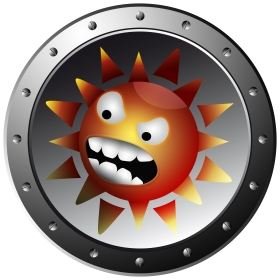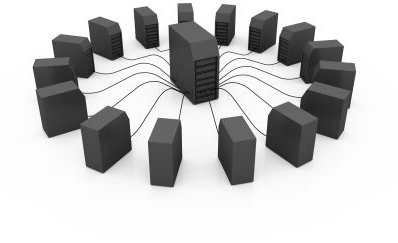Slow PC Start Up and Program Opening Problems: Free Fix Suggestions for a Slow Computer
Too Many Background Programs
There are a number of programs in your system tray that load every time Windows boots up. Such programs and applications hog memory. Some such programs are essential, others such as anti-virus software serve some valuable purpose and others only serve to launch a rarely used application such as RealPlayer or the scanner application fast.
Most such programs are unnecessary for basic system operations, and chances are that you will never require the advanced functionality that such background operations provide. For those applications that you never use, but that are running in the background and possibly slowing down your computer, you can disable them to help improve your system’s performance.
The solution: go to Start > Run > (type) msconfig and check off the icons for the unused programs. The exact path depends on your operating system. You may have to reboot before you notice any difference in your computer’s speed. Another option is to press Ctrl-Alt-Del when you don’t have any foreground programs running. This provides a list of programs currently running. Scroll down and close down the ones not needed.
Not Enough Hard Drive Space or Memory
Although this is unlikely unless your computer is very old, it is possible that your computer may not have enough hard disk space or RAM to keep your computer at top speed.
Earlier operation systems such as Windows XP required at least 300-500MB of free space just to allow for basic disk activity, whereas Windows 7 requires a minimum of 16-20 GB of hard disk space just to run the OS. Needless to say, the more applications installed, the more space required. To free up additional space, you can delete any unused files, purge your temporary folders and uninstall any applications that you don’t need or use. If nothing works, it may be time to go in for a new hard disk drive.
Memory, like hard drive space is subject to change as time goes on. While an old laptop running on Windows XP would probably require at least 512MB of RAM to run software efficiently, newer machines running on Windows 7 and Vista would require at least 2 GB RAM, and 64-bit version of the OS may require 4 GB of RAM to take advantage of the extra power. If you play games, watch live videos or use other rich multimedia content, you’ll likely need even more.
Another related issue could be a fragmented hard drive. As files are created and deleted, their locations on your hard drive may be scattered in a way that doesn’t allow for fast access. You should regularly run some type of defragmenting software (either the one built-in with Windows, or a third-party application) to keep your hard drive at its best possible performance.
Device Driver Conflict
All hardware requires drivers, in the form of software applications, to run. One reason the computer may become sluggish is the drivers becoming out-of-date. Check for updates to hardware drivers from the manufacturer’s website to see if there are any updates that you need to install, and if so install them promptly.
In addition, it’s possible that your computer could be using two different drivers for the same device. Such conlficts can slow down the computer, just as reporting to two bosses can confuse and slow down a worker. If you suspect multiple drivers for a single application, boot your computer up in Safe Mode, and run Device Manager to determine if there are any duplicate drivers that require removal.
Malware Infection

The term malware is used to describe the entire sum of viruses, Trojans, adware, spyware, and other programs designed with malicious purposes. Malware that steals confidential information or damages the computer is only a small proportion of the total malware in circulation. Most malware remains invisible and works in the background, stealing system resources for the cyber criminal’s nefarious ends, such as launching Denial-of-Service attacks on other computers, or sending spam. Naturally, such malware steals bandwidth and other valuable system resources, slowing down your computer speed.
Since malware disguises itself as operating system files or some other regular process, it takes an expert to identify malware from the list of background programs running. A comprehensive anti-virus software application that automatically updates, as well as a firewall and some sort of spyware removal program is a must for almost all computer users. But such applications can, by themselves, slow down the computer. When selecting an anti-virus suite, pay due consideration to the extent of system resources the suite consumes. The lighter the suite, the better it is for speed.
References
-
Image Credit:
computer: freedigitalphotos.net/jscreationzs : Terms of Use
malware: freedigitalphotos.net/Salvatore Vuono : Terms of Use
-
“How to Speed Up Windows.” http://www.basichardware.com/howto_speed_up_windows.html.
